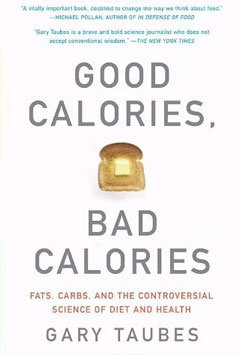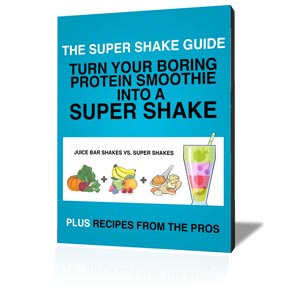Every book I review on the blog I read. Cover to cover, each and every one. Most of the time, when I am reading a diet or fitness book, I come away with one or two new nuggets of information. Usually it’s a lot of stuff I already know, slightly modified with the unique spin of the author. Rarely does anything grab me and make me question, even for a moment, what I know about health and fitness.
This book, Good Calories, Bad Calories
, did.This book is not a diet book. The author, Gary Taubes
, does not set out a plan for you to follow or make specific recommendations on the best way to lose weight, get fit or lower cholesterol. What he does do is present some pretty interesting and well researched hypotheses.The book is very dense. It’s full of research and science (which I appreciate) but it makes it hard to lay it all out in a meager blog post. I’ll do my best to summarize without oversimplifying.
He first explores 2 well know and well accepted theories:
- Heart disease is caused by eating too much fat in the diet and we should all follow a heart healthy low fat carbohydrate rich diet, and
- Diabetes is not caused by eating too much sugar or refined carbohydrates. Diabetes, specifically type 2 diabetes, is a disease caused by modern lifestyles with not enough activity and too much fat.
What he then proceeds to do is unravel both of these hypotheses to point the finger squarely at the eating of carbohydrates or, more to the point, refined carbohydrates and sugar. Without really coming out and saying it in bold type, his arguments imply remove almost all carbohydrates from your diet to lose weight and get healthy.
For 5 years he researched this book, looking at data and studies going back decades, to find how the hypotheses he dissects became the norm in the healthcare field. He especially likes to pinpoint the moment that another competing theory could have, perhaps should have, emerged but didn’t.
Let me give you an example. He spends a considerable amount of time sharing the data on why cholesterol doesn’t matter. Cholesterol levels, he states, are not a predictor of heart disease. Yet your doctor takes it as part of your physical and many times makes a recommendation for treatment based on that number. Often your doctor will make a recommendation to follow a heart healthy (low fat, carbohydrate rich) diet. Yet, the number doesn’t budge. Weight doesn’t budge. Why? He goes on to review data from numerous studies indicating that a low fat, low cholesterol diet makes no difference.
I’ll pause here for a moment to say I know that you can find a study or two to prove pretty much any point you want to make. That’s what makes trying to live healthy and be fit so confusing. One day something is bad for you and the next day another study says it’s actually good for you. As technology expands we do learn more and recommendations can change, but it makes it hard for the average person to keep up.
But this isn’t one study, it’s several studies spanning decades of work. The reference notes in the back of the book make up over 100 pages. His arguments are well documented and well presented. The studies are numerous and varied, both in the populations and methodology.
Again, while not laying out any specific recommendations, he does continue to drive home the point that carbohydrates are responsible for obesity, heart disease, metabolic syndrome and type 2 diabetes. Time and time again he points to research that indicates people lose weight, don’t get hungry and get healthier eating a diet almost devoid of carbohydrates and full of meat, eggs and butter.
He’s not suggesting a full scale Atkins onslaught. However, it feels very close to that. As a logical person, with so such a huge volume of research staring me down, it’s hard not to wonder if what I’ve been taught, what I’m certified to teach, isn’t necessarily the best approach.
It was after I finished the book and stepped away from it for a few days that I was able to get my arms around what his research and ideas mean.
First, if I or anyone had the secret to weight loss for 100% of the population I would be a very rich woman. But if I have learned anything it is this-every body is different. There are some basics that work with most, but the fine tuning is very individualized.
Second, I know what a diet of clean eating can do. I see it with my clients. When we balance focused exercise with a healthy diet amazing things can happen. Sometimes it starts slow, sometime it takes some work to get it fine tuned, but it does work. Once more, it’s livable and it’s lasting.
Third, I am a vegetarian. I have been since I started this journey. How can I reconcile this path of meat, eggs, butter and more meat with the plant based approach that has helped me stay healthy and fit? I see the research yet I’ve lived the contradiction.
Logically speaking there has to be a middle ground. I get what he’s saying and what the science and studies show. Refined carbohydrates and sugar are bad. I couldn’t agree more. I think this should be our point of focus. We shouldn’t vilify all carbohydrates because the overly processed, chemically altered products the food industry pushes at us are also carbohydrates.
What I counsel people to do is start removing overly processed sugary junk out of their diet. I also talk about increasing protein but not at the expense of vegetables, fruits and whole grains. I don’t see it as an all or nothing approach. To get more protein I would never tell anyone to eat the 40-60 grams of carbohydrates used in some studies cited. But I also repeat over and over again: remove high fructose corn syrup from your diet and no more white flour, white bread or soda.
There are lots of fake foods out there posing as real ones. Some of the most thought provoking parts of the book are chronicles of indigenous populations living healthy lives on simple, real foods which contain protein, fat and carbs, then to see the incidence of cancer, heart disease and diabetes rise when introduced to white sugar, white flour, soda and canned rations. This is the real problem.
Instead of being shaken by this research and his final hypothesis of a low carbohydrate diet, I find that there is a nugget or two that I can take away from it.
- Refined carbohydrates are bad. They spike insulin and effect triglyceride levels. This in turn affects metabolism and coronary health.
- Weight and weight loss not just about calories in, calories out. Quality of calories matters. Genetics play a part in the equation as well but they are not impossible to overcome. It is a matter of finding the right combination of food and exercise for each person.
I’ll take those nuggets and continue on, learning and teaching others how to be healthy and fit.



